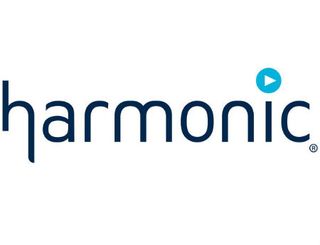Harmonic Starts Making Money on its Virtual CCAP

Harmonic has begun revenue shipments for CableOS, its software-powered “virtual” Converged Cable Access Platform (CCAP) that runs on off-the-shelf hardware, the company confirmed Tuesday on its Q4 earnings call.
CableOS, announced last September at the SCTE/ISBE Cable-Tec Expo in Philadelphia, has reached its first general availability product release, Patrick Harshman, Harmonic’s CEO said.
RELATED: Harmonic Virtualizes the CCAP
CableOS has been “deployed into [a] live commercial environment delivering DOCSIS broadband service to paying European cable subscribers,” he said. Harmonic didn’t name that operator, but Harshman said it’s a “major cable operator in Europe.”
Last fall, Harmonic also announced a warrant agreement with Comcast based on sales to the MSO and deployment milestones involving the CableOS product.
RELATED: Harmonic, Comcast Strike Warrant Agreement
Harshman said the current version of CableOS provides the functionality of an “off the shelf” CMTS (cable modem termination system), adding that Harmonic is now set on adding additional features that will lead toward “2.0 functionality in the context of a virtualized system.”
Multichannel Newsletter
The smarter way to stay on top of the multichannel video marketplace. Sign up below.
He said Harmonic expects the revenue ramp for CableOS to accelerate later into the year.
Harmonic’s early progress with CableOS is a step toward the company’s “ambitious target” of hitting a $100 million run rate in the vendor’s Cable Edge segment, Simon Leopold, analyst with Raymond James, said in research note issued Wednesday. Leopold said he expects a “more material ramp” for the CableOS product in the back of 2017.
Harmonic’s push with a virtual CCAP follows a broader industry trend in which cable operators are looking to implement software-based access platforms and eventually steer away from today’s commonly deployed centralized, purpose-built CCAP chassis.
In a survey of 35 operators around the globe, Kagan Research analyst Jeff Heynen found that 61% of them plan to start virtualizing their Converged Cable Access Platforms (CCAPs) or begin the shift to a distributed access architecture (DAA) by the end of 2018.
RELATED: Cable Ops Poised for Push Into Virtualization, Distributed Architectures
That shift should open doors to new CCAP entrants, such as Nokia and Harmonic, that are trying to trying to elbow their way into a market that is presently been dominated by Arris, Cisco Systems and Casa Systems, Heynen said in an interview about the survey.
While the incumbent suppliers have virtualized platforms on their product roadmaps, Nokia entered the vCCAP game last year when it acquired a startup called Gainspeed.
On the financial front, Harmonic said sales to $113.1 million, helped the stronger-than-expected results from video product sales. The results beat Leopold’s estimate of $108.98 million as well as Wall Street’s expectation of $108.93 million.
Leopold maintained the firm’s Underperform rating on Harmonic shares.
Harmonic shares were up 9.26% (49 cents), to $5.89 each in late morning trading Wednesday.
